Nykyinen eliitti ei suosiolla päästä Kiinaa valtaan. Sota käydään tällä vuosikymmenellä. Tärkeintä on että Suomi ei osallistu sotaan millään tavalla ja pidämme hyvät suhteet sekä USA:han että Kiinaan, ei voi olla varma voittajasta.On vaikea kuvitella maapallon väestölle hirveämpää kohtaloa kuin ekspansiivinen, etnonationalistinen kommunistien johtama Kiina globaalissa hegemonisessa asemassa.
Voitte olla varmoja, että monet kansat joutuisivat totaalisen hävittämisen kohteiksi.
Install the app
How to install the app on iOS
Follow along with the video below to see how to install our site as a web app on your home screen.
Note: This feature may not be available in some browsers.
You are using an out of date browser. It may not display this or other websites correctly.
You should upgrade or use an alternative browser.
You should upgrade or use an alternative browser.
Pihatonttu
Respected Leader
Nykyinen eliitti ei suosiolla päästä Kiinaa valtaan. Sota käydään tällä vuosikymmenellä. Tärkeintä on että Suomi ei osallistu sotaan millään tavalla ja pidämme hyvät suhteet sekä USA:han että Kiinaan, ei voi olla varma voittajasta.
WW1 käytiin liittokuntien välillä. Moni maa joutui mukaan ilman omaa aloitettaan ihan sen vuoksi että se oli lähempänä jotain liittokuntaa kuin jotain muuta.
WW2 käytiin liittokuntien välillä. Moni maa joutui mukaan ilman omaa aloitettaan ihan sen vuoksi että se oli lähempänä jotain liittokuntaa kuin jotain muuta.
WW3 tullaan käymään liittokuntien välillä. Moni maa joutuu mukaan ilman omaa aloitettaan ihan sen vuoksi että se on lähempänä jotain liittokuntaa kuin jotain muuta.
USA + loput Natosta + Intia + Australia + Japani + Korea + Uusi Seelanti +... on toinen liittokunta.
Kiina + Venäjä + Pohjois-Korea + Iran + Pakistan + joukko staneja ja muita outoja maita on toinen liittokunta.
Jossain määrin tuo sota on jo kylmänä käynnissä. Krim, Etelä-Kiinan Meri, Kiinan kalastuslaivasto, One belt - one road, Kiinan infrahankkeet, Pöö-Korean ydinase, Iranin ydinaseohjelma, kyberkähinät, Venäjän energiapeli...
Suomella on 1 300km yhteistä rajaa Venäjän kanssa ja sijainti lähellä Kuolan ydintukikohtia + Pietaria. Ei Suomi pysty pysymään sivussa vaikka haluaisi.
Sitä en pysty ennakoimaan, että millainen tuosta kähinästä tulee. Siitä olen melko varma, että vesi, proteiinit ja hiilihydraatit tulevat olemaan isossa roolissa konfliktien käynnistymisen suhteen.
Suomen valloittaminen on huomattavasti Baltiaa vaikeampi (hyökkäyssuunnat 1 vs 2-3). Venäjä ei pysty molempiin samaan aikaan ja valitsee Baltian jos kumpaakaan. Venäjä ja Pakistan ydinasevaltioina valitsevat sotansa ja pelkästään kiinan puolustaminen ei siihen riitä syyksi, ehkä haitkin sitä että Venäjä hyödyntää tilaisuuden vallata naapurimaita kun muualla paukkuu? Valmiuden nosto Euroopassa on kyllä niin suuri siinä vaiheessa kun USA ja Kiina aloittavat sotimisen että Venäjä ei pysty yllättämään.WW1 käytiin liittokuntien välillä. Moni maa joutui mukaan ilman omaa aloitettaan ihan sen vuoksi että se oli lähempänä jotain liittokuntaa kuin jotain muuta.
WW2 käytiin liittokuntien välillä. Moni maa joutui mukaan ilman omaa aloitettaan ihan sen vuoksi että se oli lähempänä jotain liittokuntaa kuin jotain muuta.
WW3 tullaan käymään liittokuntien välillä. Moni maa joutuu mukaan ilman omaa aloitettaan ihan sen vuoksi että se on lähempänä jotain liittokuntaa kuin jotain muuta.
USA + loput Natosta + Intia + Australia + Japani + Korea + Uusi Seelanti +... on toinen liittokunta.
Kiina + Venäjä + Pohjois-Korea + Iran + Pakistan + joukko staneja ja muita outoja maita on toinen liittokunta.
Jossain määrin tuo sota on jo kylmänä käynnissä. Krim, Etelä-Kiinan Meri, Kiinan kalastuslaivasto, One belt - one road, Kiinan infrahankkeet, Pöö-Korean ydinase, Iranin ydinaseohjelma, kyberkähinät, Venäjän energiapeli...
Suomella on 1 300km yhteistä rajaa Venäjän kanssa ja sijainti lähellä Kuolan ydintukikohtia + Pietaria. Ei Suomi pysty pysymään sivussa vaikka haluaisi.
Sitä en pysty ennakoimaan, että millainen tuosta kähinästä tulee. Siitä olen melko varma, että vesi, proteiinit ja hiilihydraatit tulevat olemaan isossa roolissa konfliktien käynnistymisen suhteen.
Solidsnake
Respected Leader
Mitä tarkoitat valmiudella, uusia vokkejakoSuomen valloittaminen on huomattavasti Baltiaa vaikeampi (hyökkäyssuunnat 1 vs 2-3). Venäjä ei pysty molempiin samaan aikaan ja valitsee Baltian jos kumpaakaan. Venäjä ja Pakistan ydinasevaltioina valitsevat sotansa ja pelkästään kiinan puolustaminen ei siihen riitä syyksi, ehkä haitkin sitä että Venäjä hyödyntää tilaisuuden vallata naapurimaita kun muualla paukkuu? Valmiuden nosto Euroopassa on kyllä niin suuri siinä vaiheessa kun USA ja Kiina aloittavat sotimisen että Venäjä ei pysty yllättämään.

No Australiassa perusteliin puolustushankintoja todella kovin sanoin.. Kiinaa verrattiin Natsisaksaan..Kyllä siellä tosissaan ollaan ja sietää ollakin.No eikös tuo arvio ole jonkin australian persun esittämä, ei niinkään arkitodellisuuteen pohjautuva skenaario?
Australia's new warships demonstrate state-of-the-art firepower
Viimeksi muokattu:
Jos ollaan 2025 vuonna natomaa. Ja jenkit-KIINA-japani alottaa sodan. Niin suomikin on mukana siinä ja siinä ei lässytellä, vaan aletaan värvää sotilaita kiinaa vastaiselle rintamalle.Nykyinen eliitti ei suosiolla päästä Kiinaa valtaan. Sota käydään tällä vuosikymmenellä. Tärkeintä on että Suomi ei osallistu sotaan millään tavalla ja pidämme hyvät suhteet sekä USA:han että Kiinaan, ei voi olla varma voittajasta.
Sit viellä kiinan presidentti minun käsityksen mukaa. Haluaa olla KANSALLINEN SANKARI. Kun "liittää" ekana ihmisenä taiwanin itseensä.Kun katsoo Kiinan suuntaa, taloutta, sisäpolitiikkaa, varustautumista, jättiläishankkeita niin WW3 näyttää nyt todennäköisemmältä kuin WW2 1930-luvun puolivälin huituvilla.
Vaikea käsittää miten WW3 voisi olla tulematta. Ja mitä myöhemmin se tulee, sitä pahempi se lienee.
Tuota olen itsekin pohtinut eikä Natoon kuuluvilla armeijoilla taida olla siinä vaiheessa mitään sanavaltaa kun poliitikot antavat käskyn. Voipi olla että aika moni saikuttaa tuon reissun.Jos ollaan 2025 vuonna natomaa. Ja jenkit-KIINA-japani alottaa sodan. Niin suomikin on mukana siinä ja siinä ei lässytellä, vaan aletaan värvää sotilaita kiinaa vastaiselle rintamalle.
Pihatonttu
Respected Leader
Suomen valloittaminen on huomattavasti Baltiaa vaikeampi (hyökkäyssuunnat 1 vs 2-3). Venäjä ei pysty molempiin samaan aikaan ja valitsee Baltian jos kumpaakaan. Venäjä ja Pakistan ydinasevaltioina valitsevat sotansa ja pelkästään kiinan puolustaminen ei siihen riitä syyksi, ehkä haitkin sitä että Venäjä hyödyntää tilaisuuden vallata naapurimaita kun muualla paukkuu? Valmiuden nosto Euroopassa on kyllä niin suuri siinä vaiheessa kun USA ja Kiina aloittavat sotimisen että Venäjä ei pysty yllättämään.
En puhunut maiden valtaamisesta mitään vaan sodasta. Sisällytin myös kylmän sodan termin alle.
Amid escalating diplomatic tensions, the US deputy secretary of state, Wendy Sherman, will travel to China this Sunday to meet with senior Chinese diplomats in the highest-level visit since the US climate envoy John Kerry’s trip to Shanghai in April.
Sherman’s upcoming trip will not have the trappings of a fully fledged official visit. She will – according to a Chinese statement – “hold talks” with Xie Feng, a vice-minister in charge of the bilateral relations, and “meet” with Wang Yi, China’s state councilor and foreign minister.
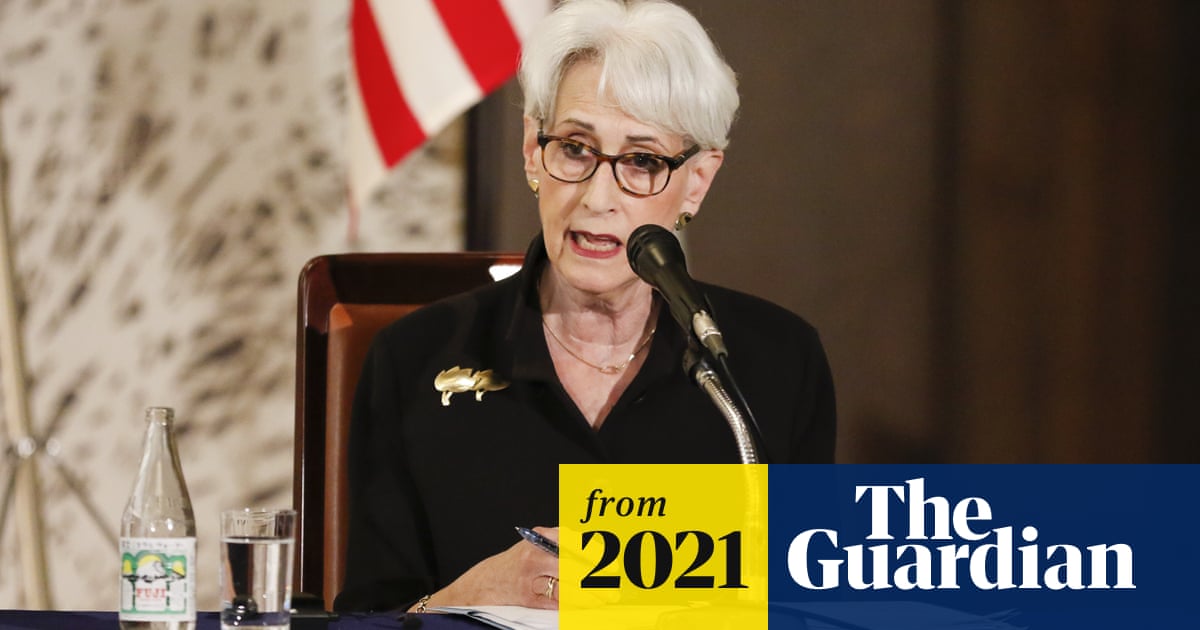
Low-key US-China meeting will address high tensions in relationship
Visit by deputy secretary of state Wendy Sherman on Sunday follows reported standoff over diplomatic protocol
Kuulostaa kivuliaalta liittää kokonainen maa itseensä (fingerporilainen vitsiSit viellä kiinan presidentti minun käsityksen mukaa. Haluaa olla KANSALLINEN SANKARI. Kun "liittää" ekana ihmisenä taiwanin itseensä.
 ). Aika kovia lausuntoja kuitenkin antanut kun ydinaseella uhkailua Japania kohtaan. Näyttää todellakin siltä että joku konventionaalinen konflikti tässä on tulossa Kiinan toimesta, olympialaisten jälkeen?
). Aika kovia lausuntoja kuitenkin antanut kun ydinaseella uhkailua Japania kohtaan. Näyttää todellakin siltä että joku konventionaalinen konflikti tässä on tulossa Kiinan toimesta, olympialaisten jälkeen?Ne saikuttaa jotka vastustaa demokratiaa eikä halua puolustaa Suomea ideologisia veljiään vastaan...Tuota olen itsekin pohtinut eikä Natoon kuuluvilla armeijoilla taida olla siinä vaiheessa mitään sanavaltaa kun poliitikot antavat käskyn. Voipi olla että aika moni saikuttaa tuon reissun.
Venäjän naapurimaana se on Venäjän kannalta ihan sama ollaanko liittoumassa vai ei, jos isompi rähinä alkaa. Liittoumassa Suomi saa varmemmin apua, kuin ilman.
Viimeksi muokattu:
Britain announced Tuesday its most powerful navy task force in a generation will visit five ports in Japan, warning China against any threats to freedom of navigation in the region's tense seas.
A strike group of Royal Navy ships spearheaded by the giant new aircraft carrier HMS Queen Elizabeth is en route to the Asia-Pacific region.
After exercises with allied navies, it will pay visits to five Japanese ports in September, officials said during a visit by Defence Secretary Ben Wallace to Tokyo.
In addition, the offshore patrol vessels HMS Spey and HMS Tamar will start a permanent deployment to the region next month, supported by ships from Australia, Japan and Singapore.
China claims sovereignty over most of the South China Sea, angering its regional neighbours and triggering protests further afield including from the US government.
Wallace said Britain had a "duty" to insist on freedom of navigation when the carrier strike group sails through the sea on its way to Japan.
"It's no secret that China shadows and challenges ships transiting international waters on very legitimate routes," he told The Times newspaper in Tokyo.
"We will respect China and we hope that China respects us," he said, stressing: "We will sail where international law allows."
Last month, Russia issued strong protests at what it said was a British destroyer's violation of its territory in the Black Sea.
The UK, which does not recognise Russia's annexation of the Crimea, insisted HMS Defender was in legitimate waters off Ukraine. The ship has since joined the rest of the carrier group.
For all its bristling power, the Royal Navy deployment is not immune to Covid-19. More than 100 of HMS Queen Elizabeth's 1,600 crew were struck down during a port call in Cyprus earlier this month.
Wallace said the ships will observe strict Covid protocols in Japan, and underlined at a news conference the two nations' shared commitment "to protect rules-based international order".
Japanese Defence Minister Nobuo Kishi echoed Wallace after the two held talks.
"We reconfirmed our shared position that we firmly oppose attempts to change the status quo by coercion, and the importance of a free and open Indo-Pacific based on rule of law," he said.
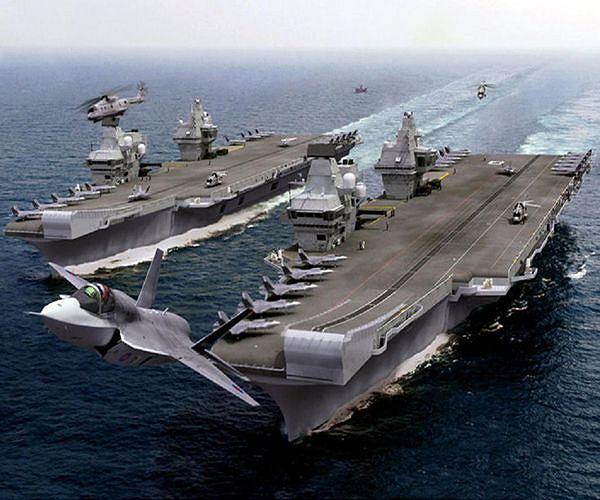
UK warns China as dispatches carrier group to Japan
London (AFP) July 20, 2021 - Britain announced Tuesday its most powerful navy task force in a generation will visit five ports in Japan, warning China against any threats to freedom of navigation in the region's tense seas.
www.spacewar.com
Toivon oikeesti ettei tapahdu mitään. Mutta järki sanoo että jossain kohtaa räjähtää tilanne käsiin kun britit-Jenkit tulee pullistelemaan.
UK warns China as dispatches carrier group to Japan
London (AFP) July 20, 2021 - Britain announced Tuesday its most powerful navy task force in a generation will visit five ports in Japan, warning China against any threats to freedom of navigation in the region's tense seas.www.spacewar.com
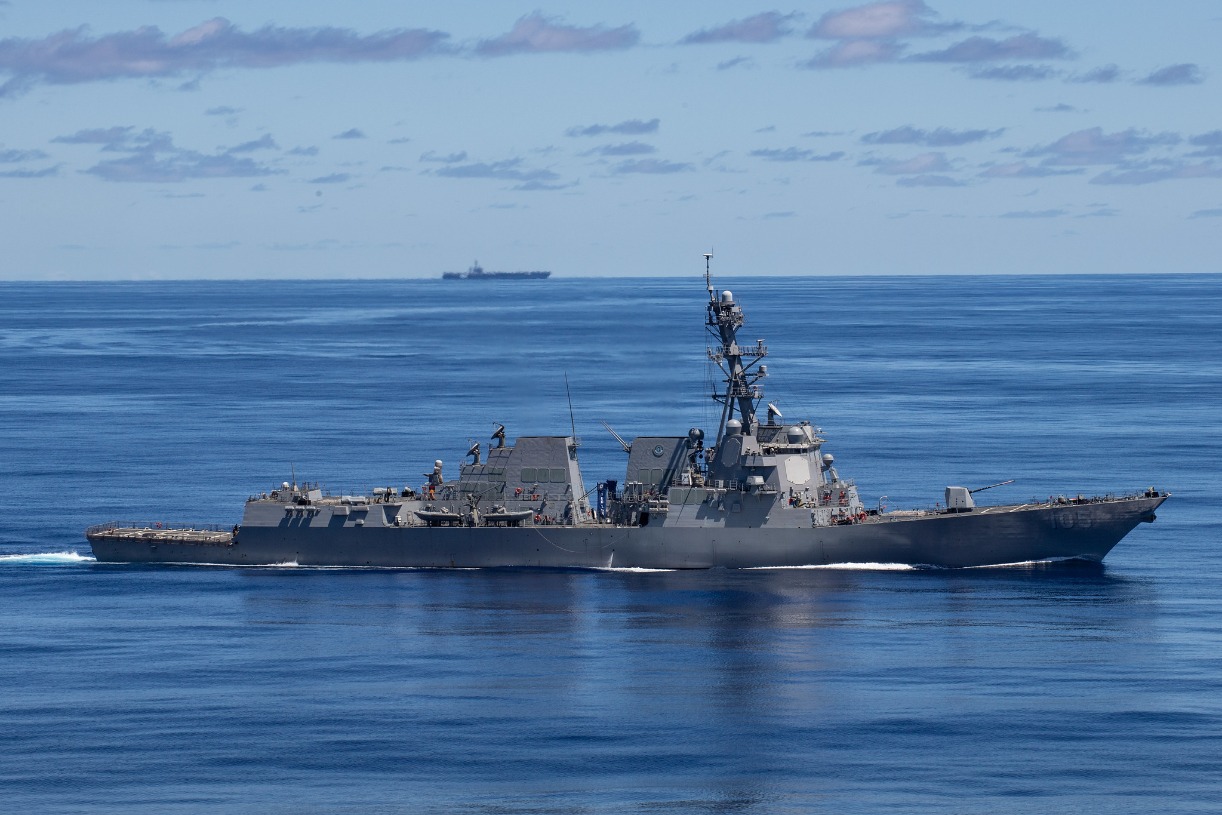
War Over Taiwan? The U.S. Military And China Nearly Went to Blows Once
The crisis began in 1995.

Taiwan prepares for cyber 'World War III'; alleges 'most attacks from China'
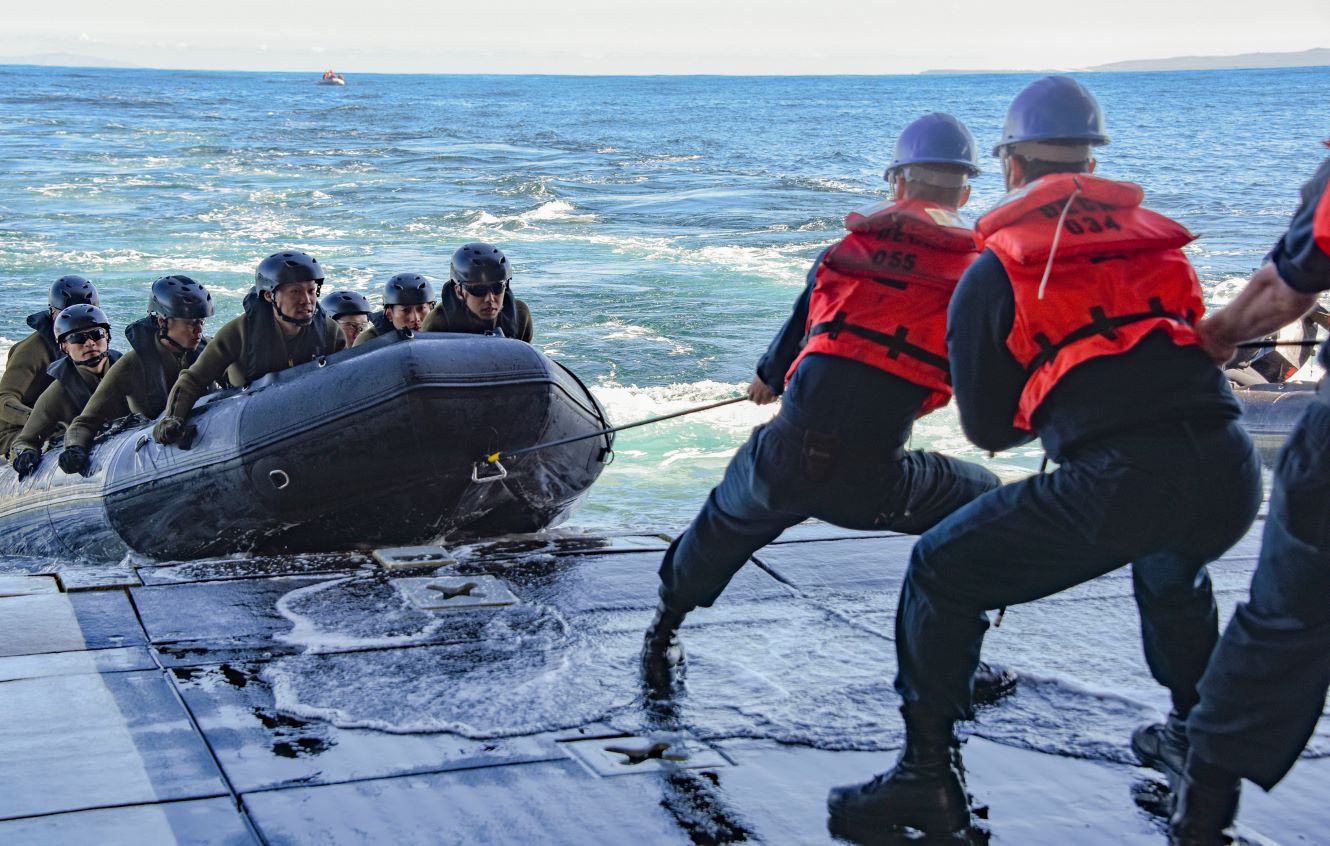
The United States and Japan Should Prepare for War with China - War on the Rocks
Last week, China toughened its language against Taiwan, warning that “independence means war.” A few days prior, the Taiwanese Defense Ministry reported
warontherocks.com
Viime viikolla Kiina kovensi kielenkäyttöään Taiwania vastaan varoittaen, että"itsenäisyys tarkoittaa sotaa". 5.2.2021 (Kyseinen kommentti)
China has blamed the US for what it called a “stalemate” in bilateral relations and accused Washington of “demonising” Beijing as high-level face-to-face talks began in the Chinese city of Tianjin.
Vice foreign minister Xie Feng urged the US “to change its highly misguided mindset and dangerous policy,” the official Xinhua news agency reported.
“The hope may be that by demonising China, the US could somehow … blame China for its own structural problems,” China’s foreign ministry wrote in a readout of the talks between US deputy secretary of state Wendy Sherman and Xie.
The China-US relationship is in a stalemate because some Americans portray China as an “imagined enemy,” Xinhua quoted Xie as telling Sherman.
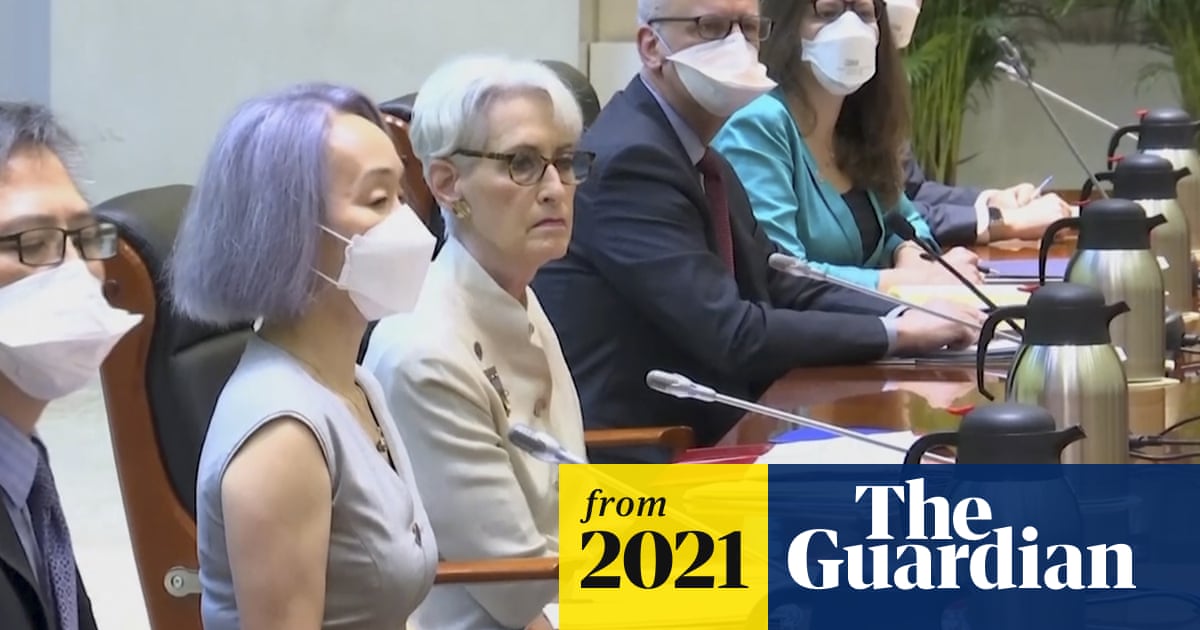
US accused of ‘demonising’ China as high-level talks begin in Tianjin
Vice foreign minister Xie Feng described relations between the superpowers as a ‘stalemate’ in discussions with US deputy secretary of state Wendy Sherman
Viimeksi muokattu:

US accused of ‘demonising’ China as high-level talks begin in Tianjin
Vice foreign minister Xie Feng described relations between the superpowers as a ‘stalemate’ in discussions with US deputy secretary of state Wendy Shermanwww.theguardian.com
Kiina on siis pettynyt, että jenkit eivät katso toisaalle, kun kiina murhaa omia kansalaisiaan ja saastuttaa maailmaa? Ja vielä ilkeävät kertoa totuuden kiinan totalitäärisestä hallinnosta!
Ja vielä ilkeävät kertoa totuuden kiinan totalitäärisestä hallinnosta!
Nyt olet asian ytimessä. On ruvennut viime aikoina tuntumaan että hommaa tehdään kaksin kasvoin ja nyt sitä kansalaisille sovellettua muotoa yritetään muokata, vaikka sodan keinoin pönkittämään omaa narratiivia.
Kirjailijana tämä on pahisten normijuoni, kun asiat rupeaa tankkaamaan. Olisiko tässäkin kyse siitä kuplan puhkeamisesta?
